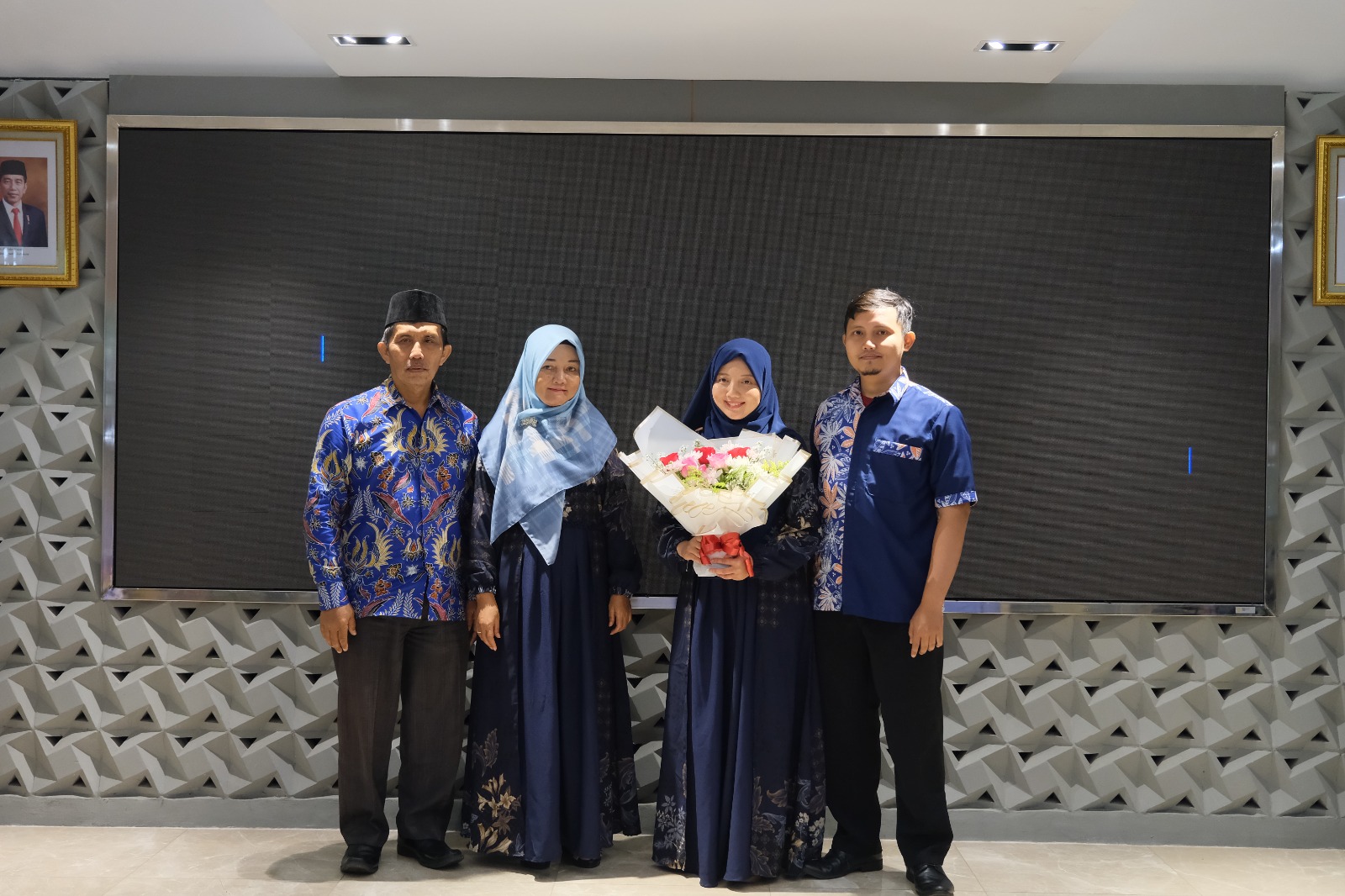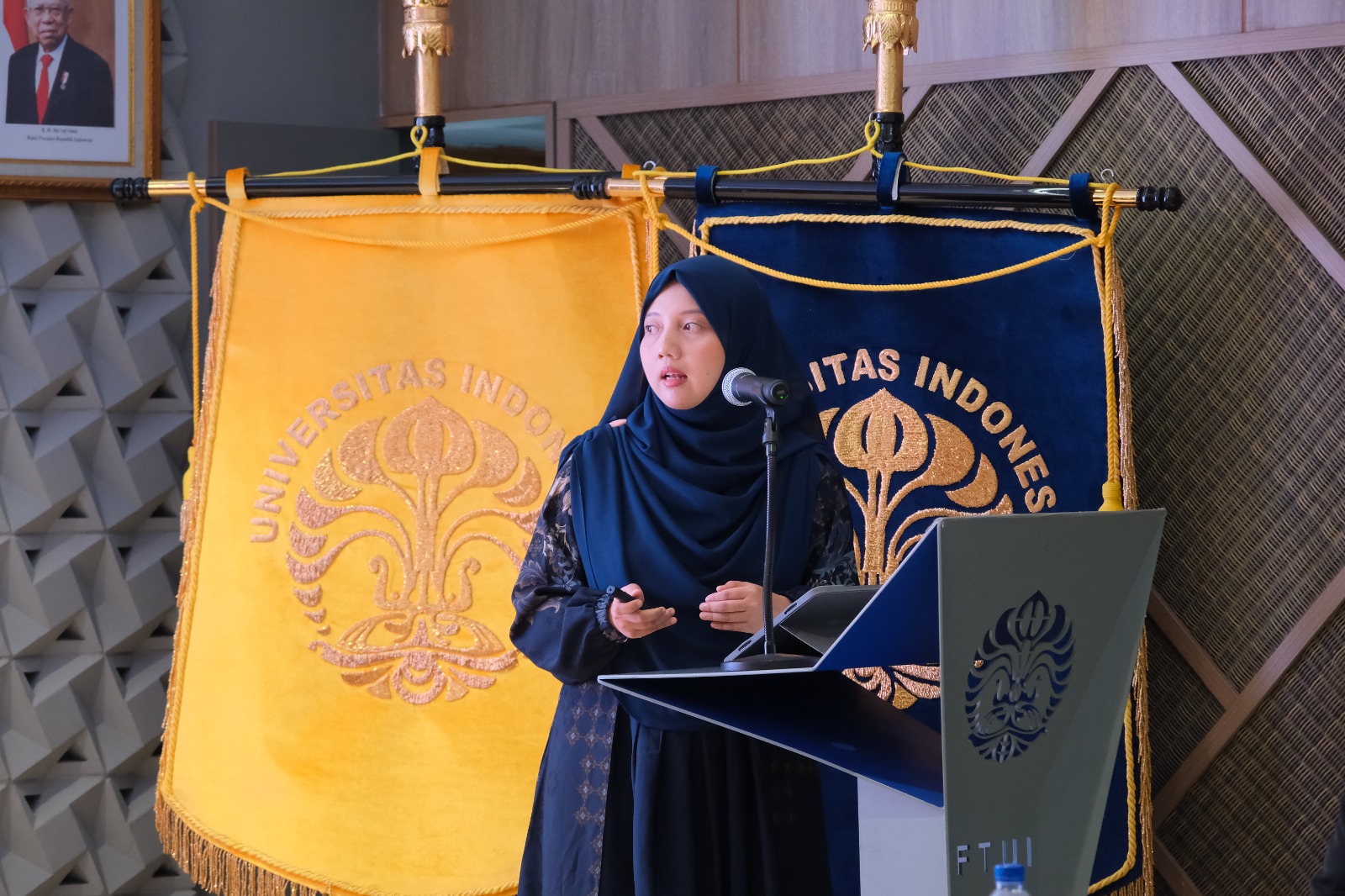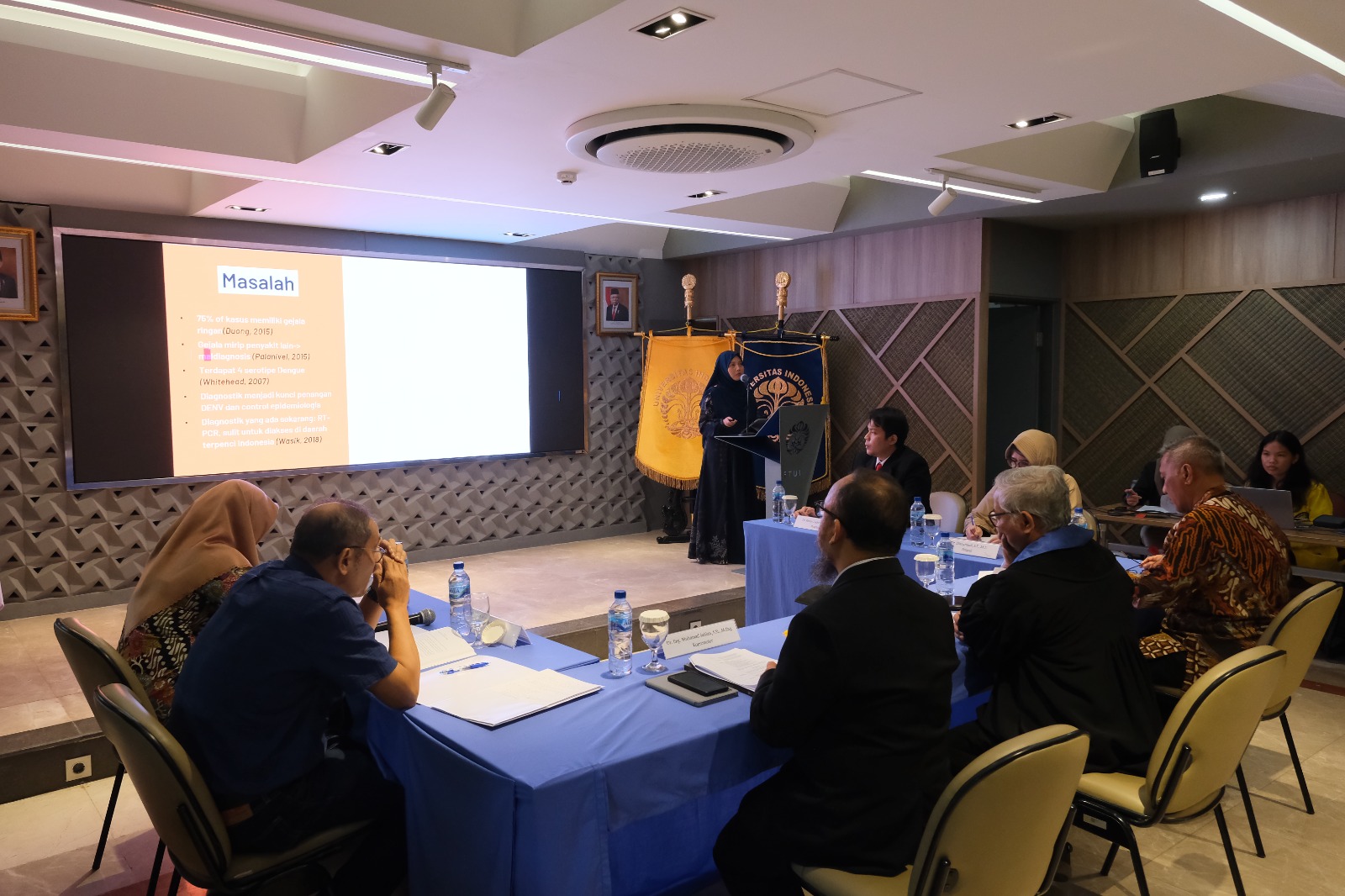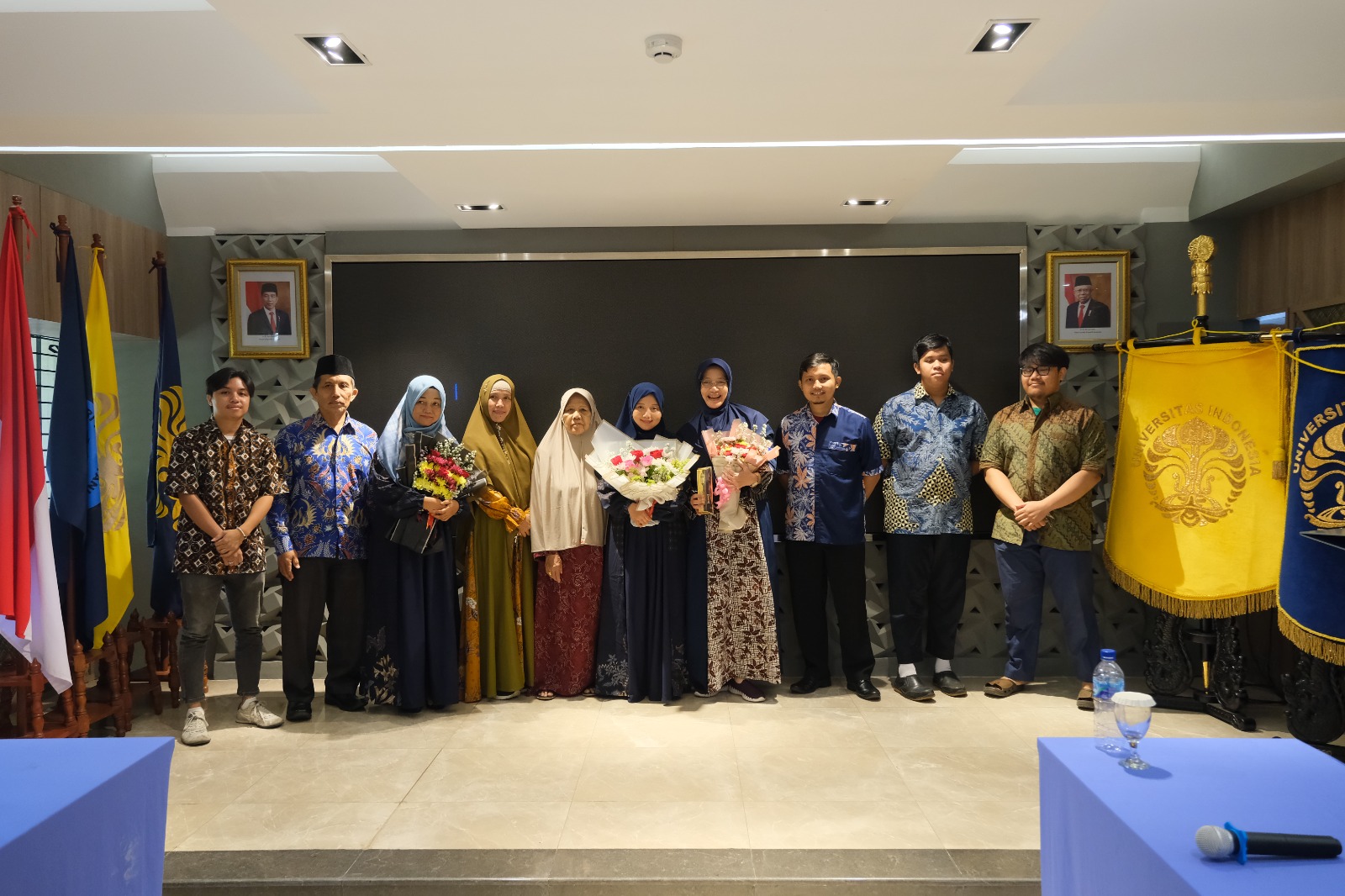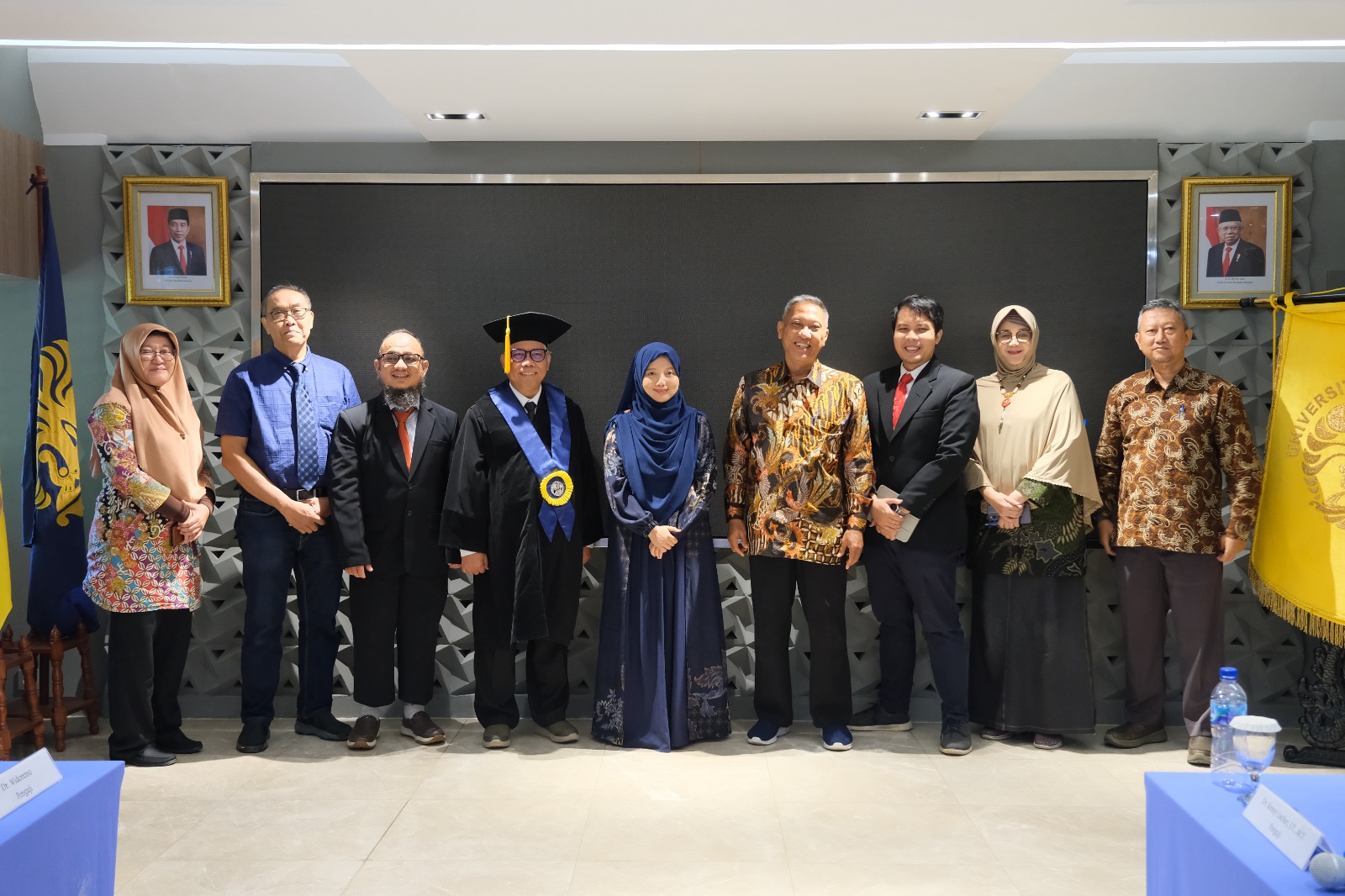Safira Candra Asih, a doctoral student in the Department of Chemical Engineering at the Faculty of Engineering, Universitas Indonesia (FTUI), researched the development of diagnostic tools for Dengue Fever (DF). The results of this research are documented in her dissertation, which was presented at the open defence for the doctoral promotion held on January 16, 2024.
According to data from the World Health Organization (WHO), Dengue virus (DENV) infections affect tropical and subtropical regions, with 390 million cases reported worldwide each year. Indonesia ranks second in the number of cases, with a mortality rate of approximately 10%.
“With the high number of DF cases each year, early diagnosis is key in the management of dengue fever caused by the Dengue virus (DENV). This motivated Safira to provide a solution in the form of a diagnostic tool based on Lateral Flow Assay (LFA), which has an economical production process, is easy to use and interpret,” Safira explained regarding the background of her research.
In this research, Safira used the NS-1 protein as a diagnostic marker for DENV infection, as its presence in the body from day one of infection supports early diagnosis. NS-1 is a non-structural protein produced by the Dengue virus (DENV) during infection. As an antigenic protein, NS-1 can react with anti-NS-1 antibodies produced by the body’s B cells.
“Regarding the main materials for LFA development, I used Nanobodies and M13 bacteriophage due to their ease of engineering and production using the E. coli system. I conducted this research intending to develop an LFA prototype based on nanobodies and M13 bacteriophage that can detect NS-1 of the dengue virus,” Safira explained.
The production process began with the creation of two cloned nanobody protein sequences capable of recognizing NS-1, which were then engineered into the pET-15b plasmid for transformation into the E. coli system. For the M13 bacteriophage, Safira engineered six peptide sequence clones that could recognize NS1 into the P3 M13 bacteriophage protein, which was then amplified by infecting E. coli.
The purification process for nanobodies involved a combination of DEAE and Ni-NTA purification columns, while M13 bacteriophage purification used PEG-NaCl precipitation. In the final production stage, an average of 15 mg of M13 bacteriophage and 1.2 mg of nanobodies were obtained per litre of media. The next step was kinetic characterization, which yielded dissociation equilibrium constant (KD) values. The KD values represent the binding affinity between NS1 and nanobodies or M13 bacteriophage.
Two nanobody clones, DD5 and DD7, had KD values of 5.59 x 10^(-10) M and 1.5 x 10^(-9) M, respectively. Meanwhile, four M13 bacteriophage clones, WHWR, YKD, KLT, and EHD, had KD values of 0.7 x 10^(-10) M, 0.9 x 10^(-10) M, and 2.4 x 10^(-10) M, respectively. These KD values indicate that nanobodies and M13 bacteriophage have high affinities for NS-1.
In her conclusion, Safira revealed that the prototype diagnostic tool successfully detected NS-1. “This tool is an LFA prototype in a half-stick format using both nanobodies and M13 bacteriophage. In testing, the tool was able to show differences when exposed to positive and negative NS-1 samples. In positive NS-1 samples, the tool displayed 2 red points on the control line (C) and test line (T), while in negative NS-1 samples, only 1 red point appeared on the control line,” she said.
“Through the LFA approach, Safira successfully developed a tool that can diagnose DF early. This innovation will undoubtedly have a positive impact on the medical field given the high number of DF cases in Indonesia and worldwide. Furthermore, Safira’s research can serve as a foundation for further studies and implementation in the field to improve public health,” said Prof. Dr. Ir. Heri Hermansyah, ST., M.Eng., IPU, Dean of FTUI.
Safira’s innovative work led her to graduate with a doctorate, earning a GPA of 3.91 and the title of Cum Laude. She is recognized as the 70th doctoral graduate from the Department of Chemical Engineering and the 539th doctoral graduate from FTUI. The Doctoral Promotion defence for Safira was chaired by Prof. Ir. Mahmud Sudibandriyo, M.Sc., Ph.D.; with Prof. Dr. Ir. Mohammad Nasikin, M.Eng. as the main supervisor and Dr. Muhammad Sahlan, S.Si. M.Eng. as the co-supervisor. The examination committee included Prof. Dr. Ir. Setijo Bismo, DEA.; Dr. Ir. Sukirno, M.Eng.; Dr. Dianursanti, S.T., M.T.; Dr. Kenny Lischer, S.T., M.T.; and Dr. Widoretno.
***
Office of Public Communication
Faculty of Engineering, Universitas Indonesia

